How to clean vinyl records
Tips and tricks to keep your records gunk- and dust-free so they sound their best
Each side of a vinyl record is one continuous groove — a little canyon that can collect dust, mold, oils, static electricity, and all other sorts of residue from daily life. In order for vinyl to sound great, you want the stylus in your cartridge to be able to read the music without anything else getting in the way. So you have to keep your LPs clean.
I actually enjoy cleaning my records — it's a very satisfying ritual. That said, I'm always ready and willing to learn and improve my own habits, so I checked in with Jon Derda, a VP at Mobile Fidelity. "MoFi" presses high-quality remastered records and manufactures excellent turntables, so I couldn't think of anyone who could offer a more informed expert opinion.
He told me how to clean new and used records, and even how to keep the stylus on your turntable from collecting debris. If you're looking to keep your record collection in good shape for years to come, read on.
Dry-brush your records every time
As soon as you take the record out of its sleeve and place it on the platter, you should be reaching for an anti-static record brush. I've used the Pro-Ject Brush It and the AudioQuest Anti-Static Record Brush, and had good results with both.

Use a dry brush before each play of a record side, to remove any accumulated dust and hair.
With the platter spinning, gently place the bristles on the surface of the record and swipe way any dust or fluff. This should also discharge any static electricity that has built up.
"It only takes 10-15 seconds to do this and is well worth your time," Jon said. "Dry record brushes are good for light cleaning, more like dusting a piece of furniture than really wiping it down. They're a good tool, but not the total solution."
Wet-brushing is even more effective
Wet cleaning is superior to dry cleaning, but it does take a bit more time and care. Where a dry cleaning brush gets dust off the surface, wet cleaning can remove particles that get down into the record groove.

This brush can be used to dry-clean a record, but it also helps deep-clean when used with a safe cleaning fluid.
The Mobile Fidelity Record Cleaning Brush can do double duty — it can clean the surface as a dry brush, or get a little deeper with the help of a specially-formulated cleaning fluid. Jon Derda is a fan of Mobile Fidelity Super Record Wash, both as an employee of the company, and as a serious record collector.
"At MoFi our cleaning fluid is made by Record Reseach Lab (RRL)," he said. "It's gone through four stages of deionization, after which it's triple-distilled and then treated with high-intensity ultraviolet light to kill all bacteria and microbiological particles."
Deep-clean with a record cleaning machine
We've discussed dry-cleaning, which is like dusting furniture, and wet-cleaning, which adds a spritz of cleaning fluid before the wipe-down. If you really get into record collecting, you'll eventually run across a fantastic pre-owned platter that's suffered from a bit of neglect. And you'll need something more than a hand-held brush to restore it to its former glory.

Use a machine to clean all records — used or new — when you first acquire them.
"If you found some records in your parents' basement they probably need a deep cleaning," says Jon Derda. I'd echo that, and add that I've found vinyl that needs a little extra TLC at flea markets, antique shops, and even in the used bin at a decent record store.
The best way to deep-clean a vintage find is to use a record cleaning machine like the Record Doctor V or Record Doctor VI. These relatively inexpensive devices use cleaning fluid, felt cleaning strips, and vacuum suction to gently but effectively remove microscopic dust and grime from a record groove. Our expert Philip made a handy video that demonstrates how they work.
A 16-oz. bottle of safe, alcohol-free Record Doctor RxLP® cleaning fluid is included with the machine, which should last you a while. When you need a refill, you have a few options: You can get the pre-mixed solution in another 16 oz. bottle, or get really prepared with the 32 oz. bottle. Or you can get a small bottle of Record Doctor RxLP concentrate that you can mix into a gallon of your own distilled water.
"Once you’ve done one really good cleaning with a record cleaning machine, you shouldn’t have to do it again for a really long time," says Jon. "Dry brush cleaning before each play and putting the record right back into a clean anti-static sleeve after playing will keep it clean."
Clean your brand new records, too
Deep-cleaning used vinyl might seem like a no-brainer. The benefits of cleaning brand new records before you play them may not be as obvious.
"This is one of the first things I tell new record collectors," Jon said, drawing on his experience with Mobile Fidelity's LP-mastering operation. "Making records is a dirty business. They're made in a factory, and while the best pressing plants handle them with care, they are still going to be exposed to their environment. Mold release compounds are used to make each record release from the stamper after it's pressed. There can be a noticeable sonic improvement once that's cleaned off."
Protect vinyl from static electricity
The three methods described above can get your records pretty darn clean. Taking a little extra care between spins can help you keep them that way longer.
We offer a cool little gizmo called the Milty Zerostat 3 — a handy anti-static "gun" that discharges static electricity from vinyl surfaces. When you squeeze the trigger, the Zerostat's piezo-electric crystal issues a stream of positive ions. Releasing the trigger creates a stream of negative ions, and the two actions together discharge static electricity that can attract dust particles.

Squeeze and release the trigger to discharge static from vinyl surfaces — no batteries required.
You can keep records static-free between plays by storing them in anti-static record sleeves.
"Most records don’t come with anti-static inner sleeves, so the simple action of pulling a record out can create static cling and attract the dust particles and hair around it," Jon said. "After cleaning, I always change the inner sleeve to one with anti-static properties, so the clean record doesn’t get recontaminated."
I have a 50-pack of Mobile Fidelity Record Sleeves I use for just this purpose. I certainly hold onto inner sleeves that have lyrics or cool artwork on them — that's a big part of what makes records such a joy to own — but I entrust the precious vinyl to a safer environment.

Keep records clean by storing them in anti-static record sleeves.
Also, if you're like me, and nobody has ever accused you of being a neat-freak, you should fight the tendency toward entropy during a chilled-out listening session.
"All the ads that feature records sprawled out on a carpet might look cool, but please don’t emulate them!" Jon pleaded.
Are homemade record cleaning solutions safe?
I get it, Jon and I sell this stuff for a living, of course we want you to use our favorite products. But what about cheap or free cleaning methods? I've read plenty of forum posts that tout the virtues of home record-cleaning remedies — anything from dish soap with water, to wood glue, and even household solvents like WD40.
I don't have any scientific evidence for or against any of these suggestions, and I'm not at all against saving a buck, but my records and turntable are an area of my life I'm willing to invest in to keep them working well for a long time. I'm naturally risk-averse when it comes to my records, so I'm reluctant to try something that might damage them over the long run, even if it seems to work in the moment.
As you might have guessed, Jon Derda agreed with me on that point. "The first rule of record cleaning is do no harm," he said. "Records are delicate, but with proper care they can last generations. I have many albums my dad bought from the '60s and '70s that sound great to this day, and I plan on handing them down to my kids. With all the proven solutions out there, most of which are reasonably priced in comparison to the value of the average record collection, this is a path most can — and should — avoid."
Keep your turntable clean, too
Your records can certainly pick up dust, hair, and lint from everyday exposure to their environment, but there's one piece of equipment we know they'll definitely come into contact with — the turntable they're played on. You'll want to keep that clean for its own longevity, and for the sake of the records you place on its spindle.
Carefully clean your turntable's stylus
"One of the most common tech support inquiries we get is people complaining about distortion from their records," Jon Derda said of his colleagues at Mobile Fidelity. "99% of the time, they haven’t cleaned their stylus and you can actually see a hairball hanging off the diamond tip!"

Keep the stylus on your turntable clean, so it doesn't transfer any gunk to your record grooves.
Some cartridges are sold with a small nylon brush. If you don't have one, there are a couple of ways to go when you look for one to use. Much like with the records themselves, you can use a dry brush like the Pro-Ject Clean It to remove visible fluff.
First of all, make sure the 'table is turned off, so you don't transmit potentially damaging noise through your speakers when you're doing the cleaning motion. Jon Derda offered some additional practical advice: "It’s very important that you gently use that brush from behind the stylus and pull towards you. And you don’t want to push on the cartridge’s cantilever (the arm that holds the diamond stylus) which could break it."
That should take care of the easy-to-see surface contaminants, but the needle can pick up gunk from its environment, and even from a poorly-cleaned record groove. To get rid of that, I'd recommend a wet-brushing with something like Record Doctor SCF. It looks kind of like a mascara bottle, with a brush attached to the cap that sits in the fluid so it's ready to get to work immediately. Use the same gentle back-to-front cleaning motion you'd use with the dry brush.
I asked Jon for his opinion on how often a stylus should be cleaned.
"When I’m doing hyper-critical listening for product evaluations, I clean the stylus after each record," he said. "However, my normal routine is to clean it once after I’m done listening for the day. That should be all you need to do if your records have been cleaned."
Keep your dust cover down
This may seem like an obvious thing to say — it's literally called a dust cover, after all — but I've already confessed to being a little less than diligent on a lazy Sunday afternoon, so I'll say it anyway: keep your turntable's dust cover down.
I often leave it open when I'm actively playing a record, so I don't accidentally bump the tonearm while moving it, but it's closed any other time. It's a lot easier and safer to take a duster to the cover rather than the delicate parts of the turntable itself.
Final thoughts
If you're even thinking about collecting records, it seems safe to assume that you enjoy the experience of buying, handling, and storing them. Otherwise, you'd just stream the songs, right? Keeping your records clean is an equally important part of that process.
"Part of the appeal of records is that you're preserving a physical medium and art form that future generations will appreciate," Jon said. "Record cleaning doesn’t have to be a chore. Once you have a routine it can actually be really satisfying."
Let us help
If you want to talk over your options and best practices for record cleaning, please feel free to contact us. Our friendly, knowledgeable advisors can help you assemble a few handy items to keep your records sounding their absolute best.









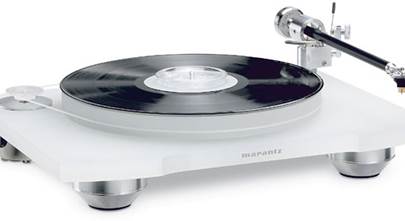

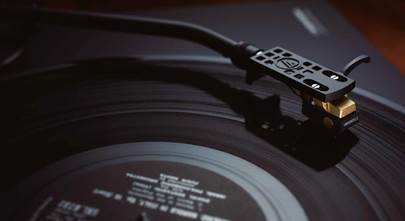
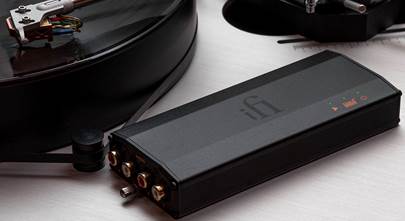
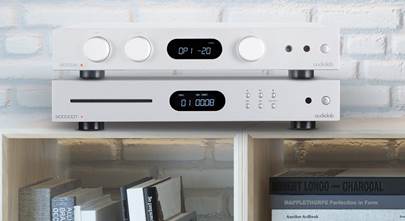
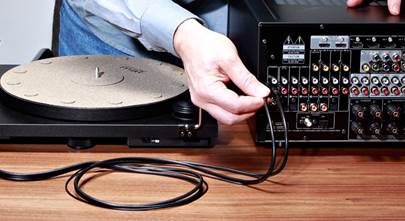

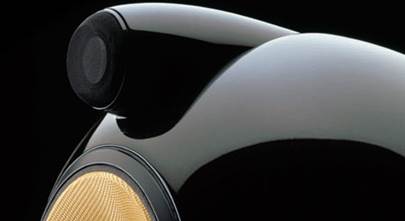

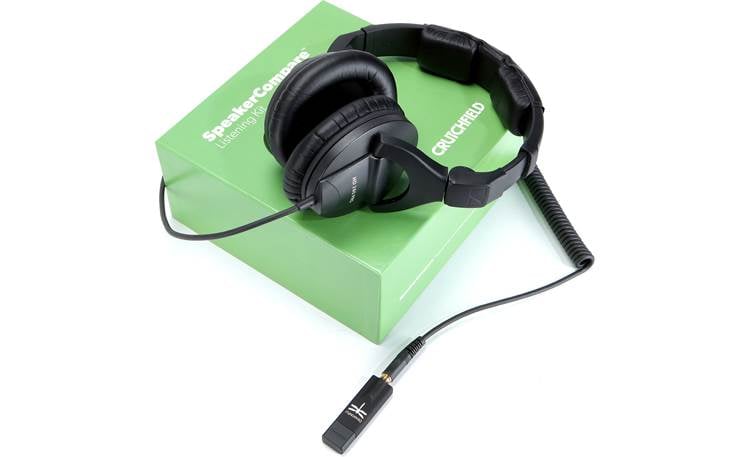
Marsha Seidman from Manchester
Posted on 1/27/2023
I would appreciate knowing the best ways to get the scratches off records and also how to get the mildew smell off the album covers & records. Thank you very much for your help!
Eric A. from Crutchfield
on 1/27/2023
Bruce Taylor from Spring
Posted on 1/20/2023
We'll written and there's some solid advice for the starting collector. I might add that I deep clean my vinyl ultrasonically and from the time I remove the LP from the cleaner, put it in it's sleeve and jacket and then add a protective cover, I still pick up microscopic particles in the air by the time it gets to the turntable and I have a large HVAC air filter in the room. I not only clean the stylus after every album, I clean the stylus after playing each side. After hours of cleaning and as much protection as you can add, dust still finds a way. I also recommend a couple of drops of record cleaning fluid on your stylus brush to start each day. It can make a huge difference in the quality of play.
Eric A. from Crutchfield
on 1/23/2023
Greg R from Rome, NY
Posted on 1/16/2023
Great tips on preserving your vinyl. I use most of the recommended products to clean and care for my vinyl and stylus.
Eric A. from Crutchfield
on 1/17/2023